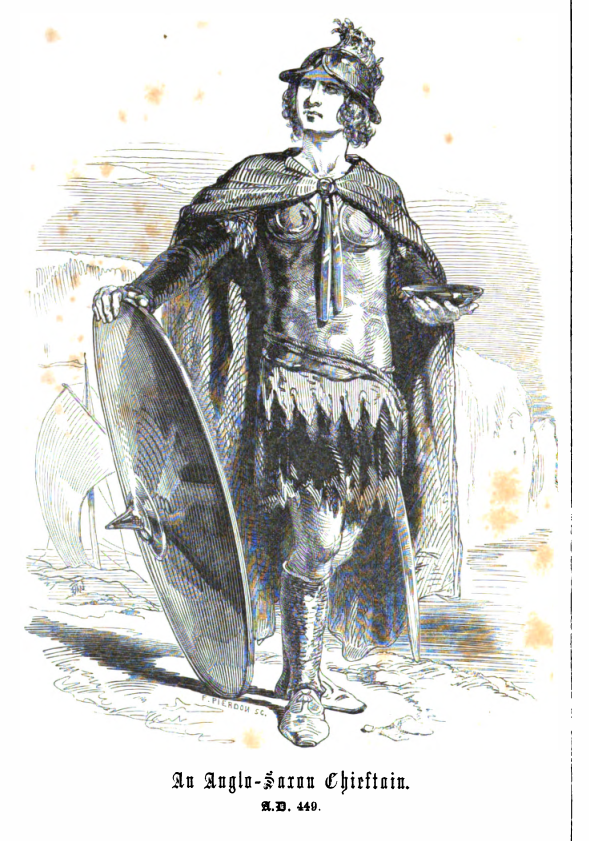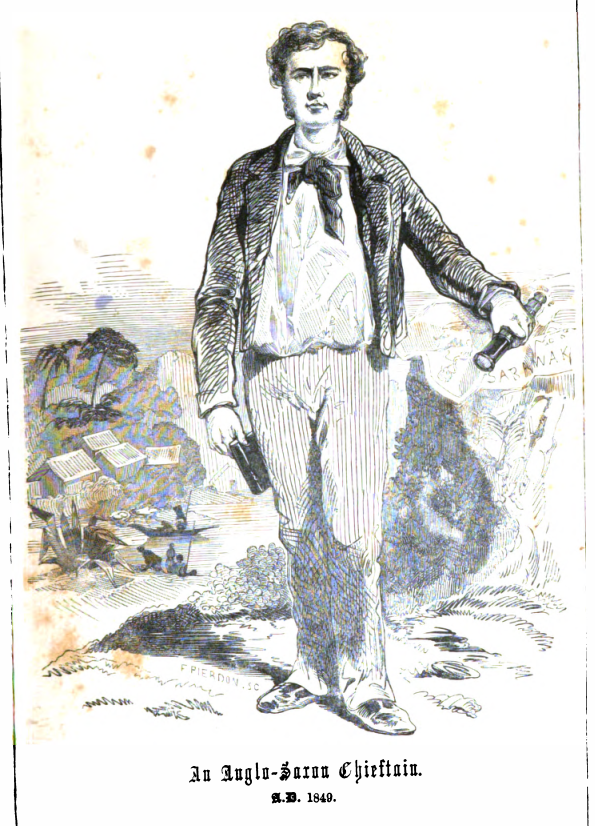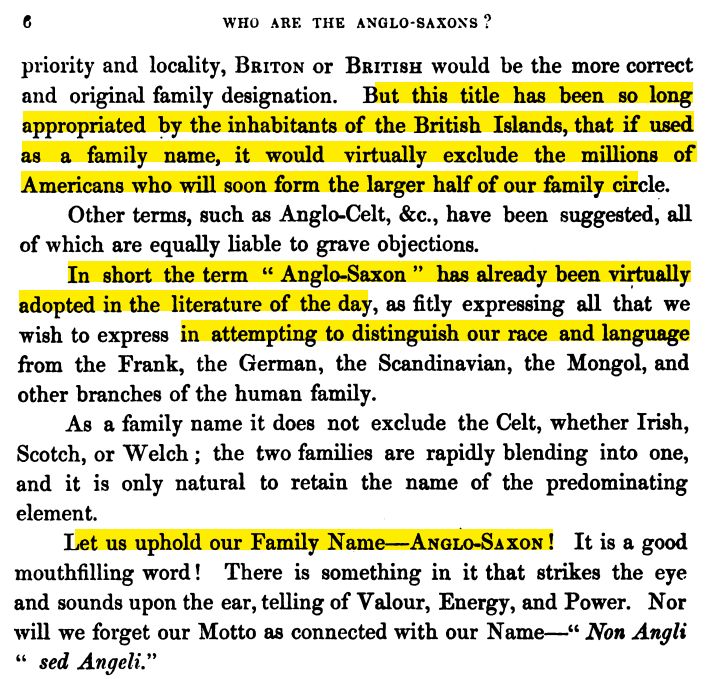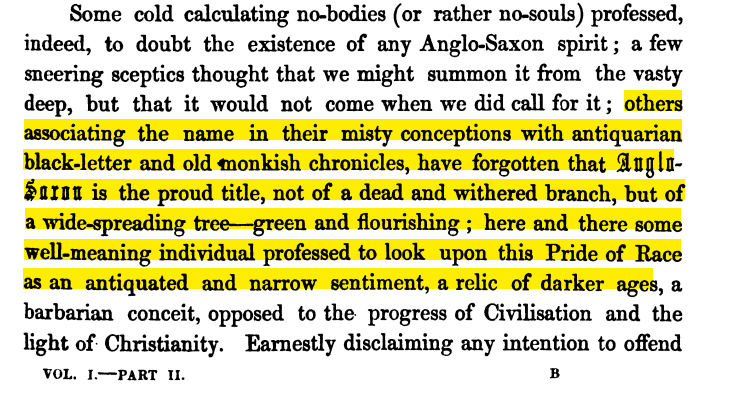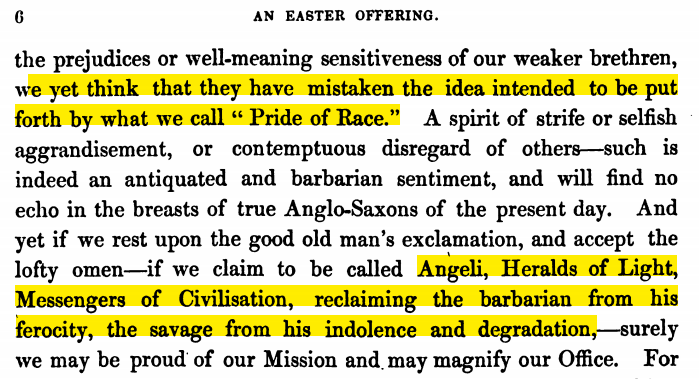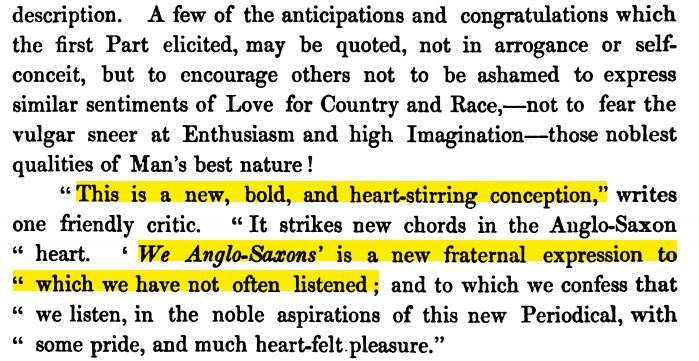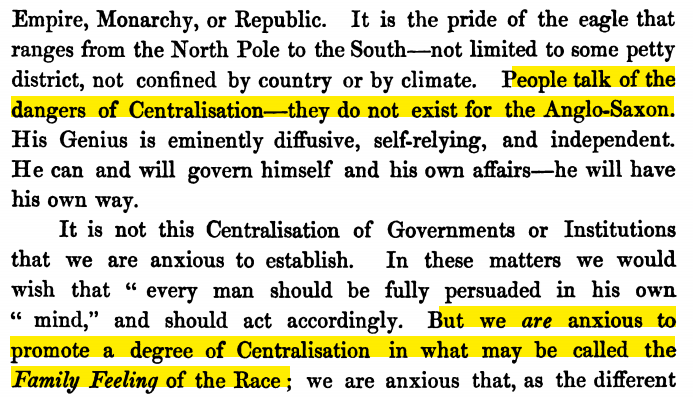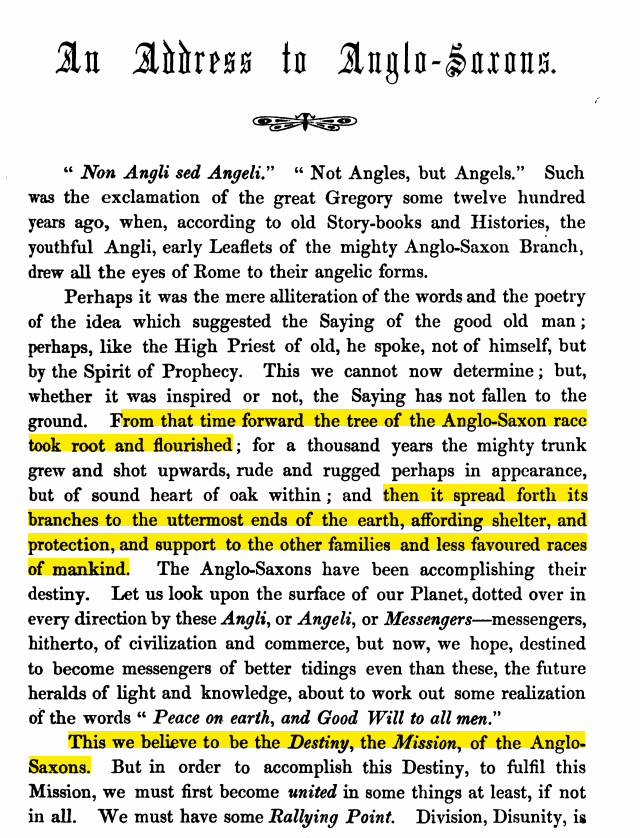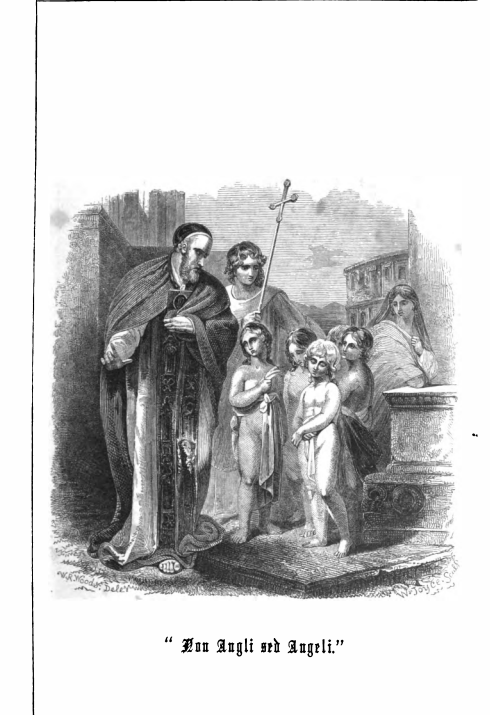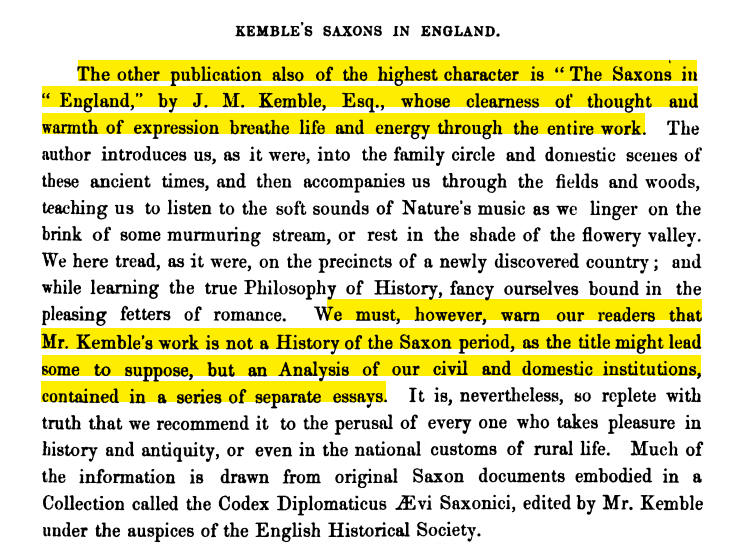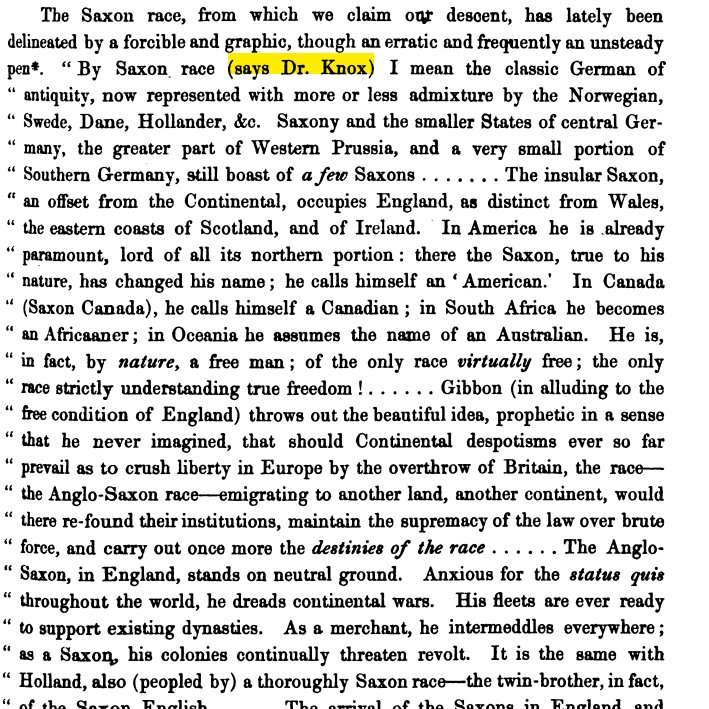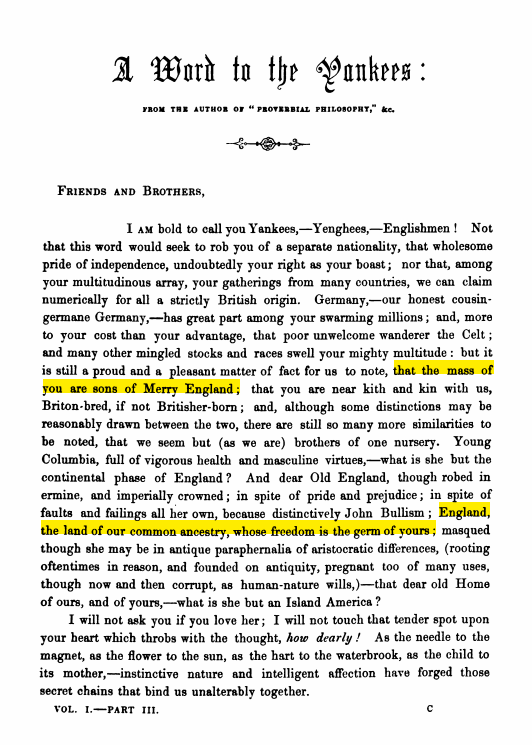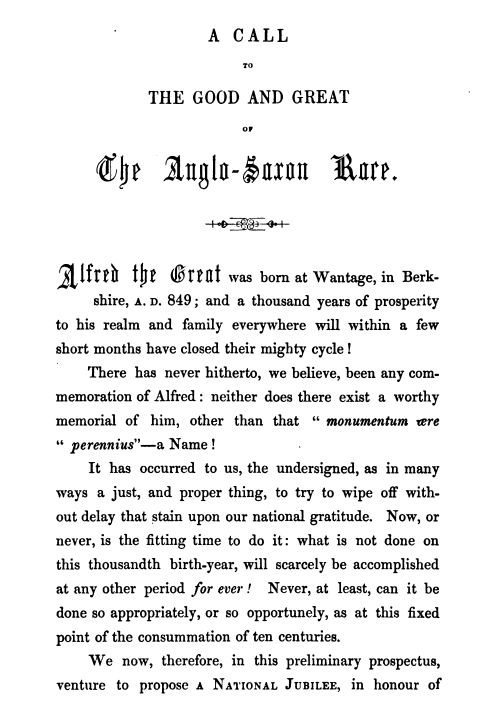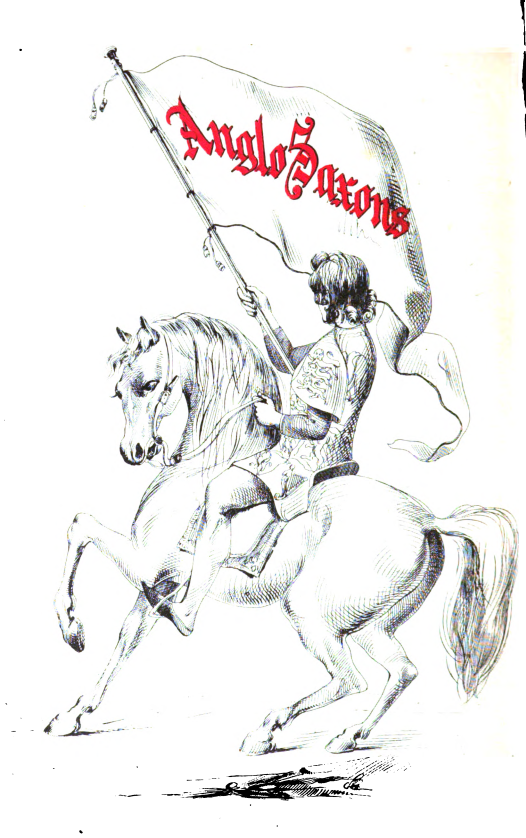[TW: racism] Thread: In 1849, a London periodical called The Anglo-Saxon appeared with the stated goal of popularizing the term "Anglo-Saxon"as a racial & linguistic term tied to the early Middle Ages and intended to justify colonization as the race& #39;s right. 1/11 #MedievalTwitter
The periodical& #39;s idea of a transhistorical "Anglo-Saxon" race of colonizers can be summarized in these two "Anglo-Saxon chieftains" depicted in the first issue: one medieval, standing in England, and one modern, standing in a colonized space in the global south. 2/11
They stated that they wanted to make the term "Anglo-Saxon" into a "Family Name" for all of the UK& #39;s current and former colonies, uniting them not under the banner of nationalism but that of "Pride of Race." 3/11
The destiny of the "Anglo-Saxon race," they argued, was colonization. The Anglo-Saxon was "pre-eminently the colonist of the world," the editors proclaimed. 4/11
With every issue, the periodical reported on the enthusiasm for this new term among its readers and described the term as a flag designed for white people around the world to rally around and to promote "Family Feeling of the Race." 5/11
They tied the term to the early medieval English. The journal published long articles on the customs of the medieval "Anglo-Saxons" and its motto ("Non angli sed Angeli") was taken from Pope Gregory& #39;s fabled meeting with enslaved English boys (also depicted on the cover). 6/11
The journal printed scholarship from medievalists of the day such as John Kemble that they felt spoke to their concerns and showed how--as they imagined--the roots of the modern "Anglo-Saxon institutions" appeared first in early medieval England. 7/11
They also drew upon race scientists of the day to justify their claims, including the notorious Robert Knox, whose book "The Races of Man" was quoted heavily within the journal& #39;s pages to justify their glowing image of the "Anglo-Saxon race." 8/11
The periodical was not long-lived, but it is quoted in other publications of the time. The periodical tried hard to get United States readers interested in adopting the term, including a larger open letter titled A Word to the Yankees, which produced many US responses. 9/11
It also organized (with medievalists) a Jubilee celebrating King Alfred, which led to the production of much Alfred scholarship, including a complete translation of his works. Medieval studies and popular racial Anglo-Saxonism fed into each other in these pages. 10/11

 Read on Twitter
Read on Twitter![[TW: racism] Thread: In 1849, a London periodical called The Anglo-Saxon appeared with the stated goal of popularizing the term "Anglo-Saxon"as a racial & linguistic term tied to the early Middle Ages and intended to justify colonization as the race& #39;s right. 1/11 #MedievalTwitter [TW: racism] Thread: In 1849, a London periodical called The Anglo-Saxon appeared with the stated goal of popularizing the term "Anglo-Saxon"as a racial & linguistic term tied to the early Middle Ages and intended to justify colonization as the race& #39;s right. 1/11 #MedievalTwitter](https://pbs.twimg.com/media/EKC55zPXkAAy8LZ.png)
